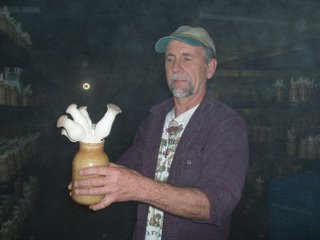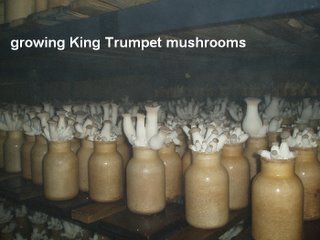Jan. 30 to Feb. 2, Escondido, California
Sweetie (the Vollman cat) and Cat had to take turns exploring Pat and Russ Vollman’s property while I was parked there for four nights. Jeremiah parked easily at the end of their steep driveway – and was perfectly level – (Yeah!) The Vollman’s home sits on the side of a hill with a great sunset view. It is in the midst of avocado and citrus trees, and that means lots of birds to enjoy. I had such a nice time there.
My friend Irene Bauer picked me up Tuesday afternoon and we talked non-stop for several hours at her house and then over a delicious Italian dinner at Joe’s Café. We exchanged notes about our kids, grandkids and travels.
On Thursday I went to lunch with Pete Durst, my bighorn sheep-counting partner and dance partner/country-western line dance co-teacher. I was eager to talk about the Palm Canyon trail and show him the pictures I had taken. Pete knows first-hand that our counting site is still there because that’s where he counted sheep this past July. So, cancel what I said in a previous post that the site had washed away. Either I didn’t go far enough, or I just didn’t recognize it. I won’t be counting sheep this coming year, but I’d like to go in 2007.
You’ve probably heard this: “How are things at work?” “I feel like a mushroom – they keep me in the dark and feed me (manure)!”
If you were a specialty mushroom grown at Golden Gourmet Mushroom Farm in San Marcos (San Diego County), it would be different. You’d be grown in a darkened computer-controlled environment on a “sterilized substrate,” a mixture of ground corncobs, oats, hardwood sawdust, bran, soybean meal spent brewers’ grains, and ground limestone. No pesticides or synthetic fertilizers are added. The process is fascinating.
On Wednesday, I met the COO Steve Farrar and spent a couple hours touring the farm and learning about the specialty mushrooms grown there. If you recall your science classes in high school, you know that a mushroom is a fungus – hardly an appetizing name. These edible fungi are almost a perfect health food: low in calories and fat, high in protein, vitamins, minerals and fiber. A diet that includes mushrooms on a regular basis is helpful in maintaining optimum health. GGM grows several specialty mushrooms: Enoki, white and brown Beech, King Trumpet (also called French Horn), and Maitake (also called Hen-of-the-Woods).
GGM does not grow common “button” mushrooms such as the small white ones, the small brown ones called cremini, or the portobella (which is a cremini that has been left to grow longer). These are grown in the dark on composted manure mixtures.
The photo shows Steve in one of the growing rooms, holding up a bottle with King Trumpet; the other photo shows a row of such bottles.

Western medicine is finally recognizing – what has been long known in other parts of the world – that they also stimulate and regulate the immune system. GGM grows and processes several medicinal and nutraceutical varieties. They are too bitter and hard to eat, so they are dried and pulverized and then used as an extract, tea or powder.

IMPORTANT: One important fact I learned is that the health properties of mushrooms are only available when they are cooked – so raw mushrooms on salads and such don’t count. In fact, Steve advises that we never eat raw mushrooms of any kind. Steve gave me eight packages of their specialty mushrooms and a packet of recipes for them. I sautéed some Maitake with my scrambled egg this morning and they were delicious.
Tomorrow (Friday) I head back to Guajome. On the way I’ll do some shopping and gas up Jeremiah.
“In our materialistic age, we forget that true wealth is gauged by enjoying what we have, not longing for more. Money can buy medicine, but not health. It can purchase a house, but not a home. It can buy companionship, but not friends. It can provide a bed, but not sleep.” Pastor David Jeremiah
“I have learned that in whatever state I am, to be content.” Apostle Paul writing in The New Testament; Philippians 4:13.

<< Home